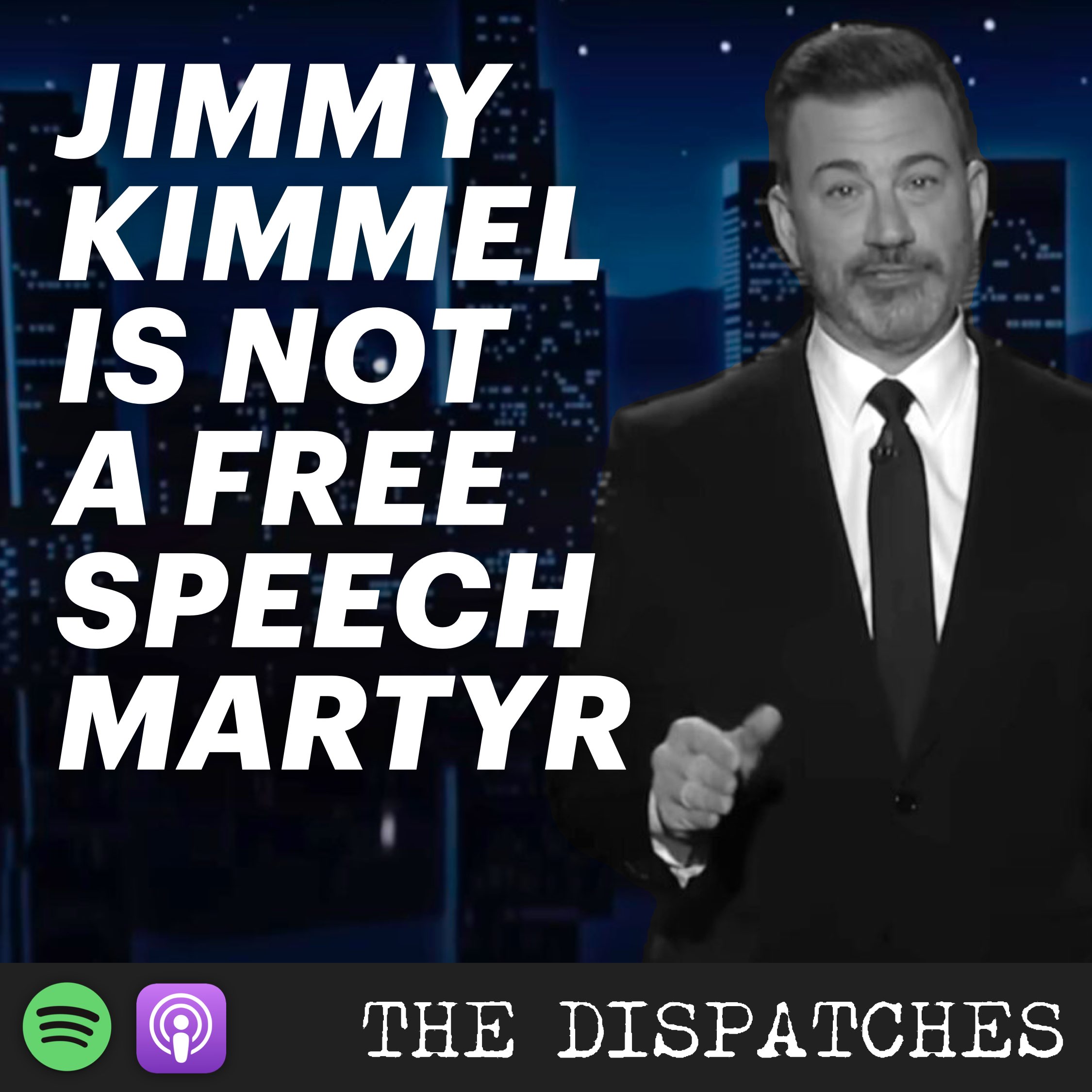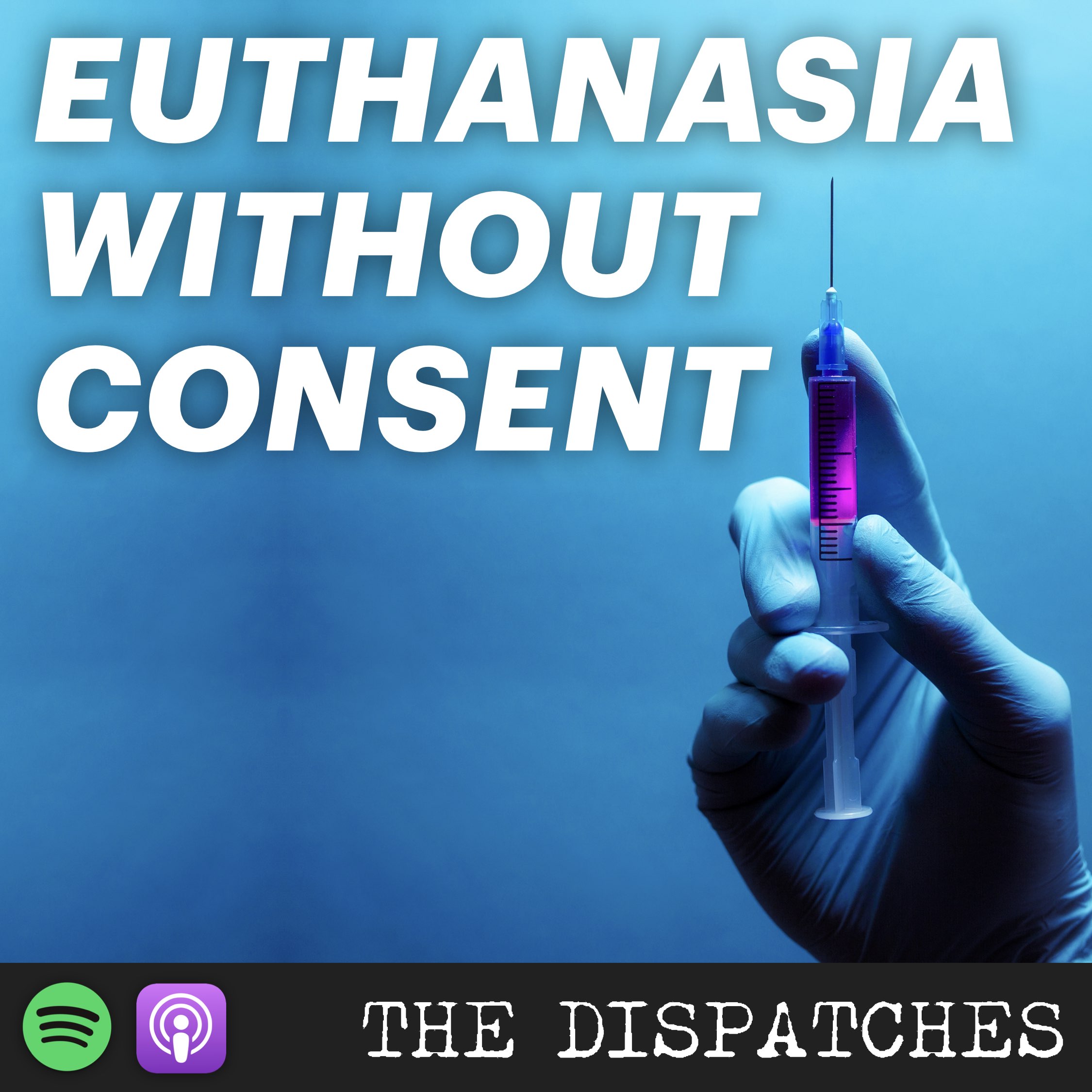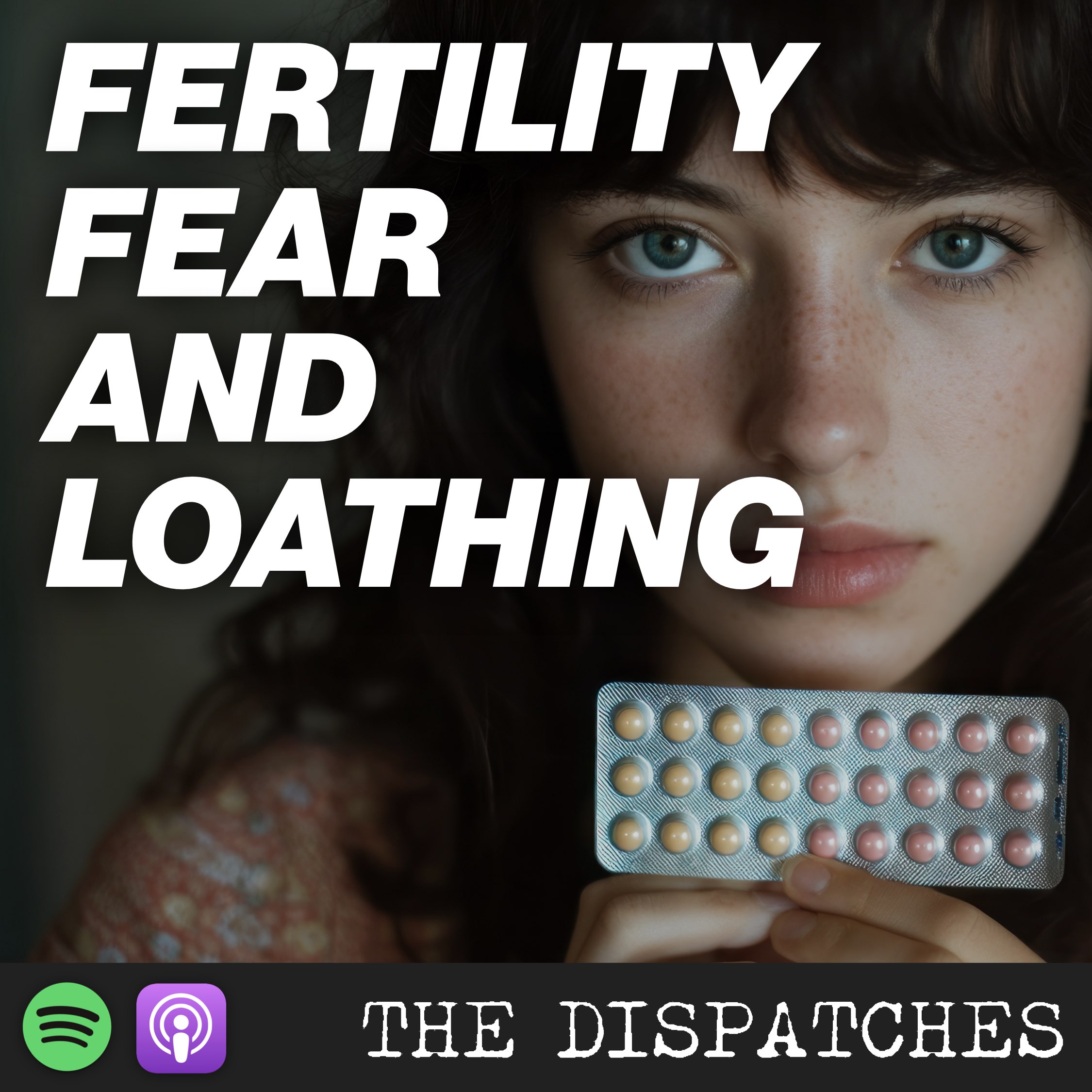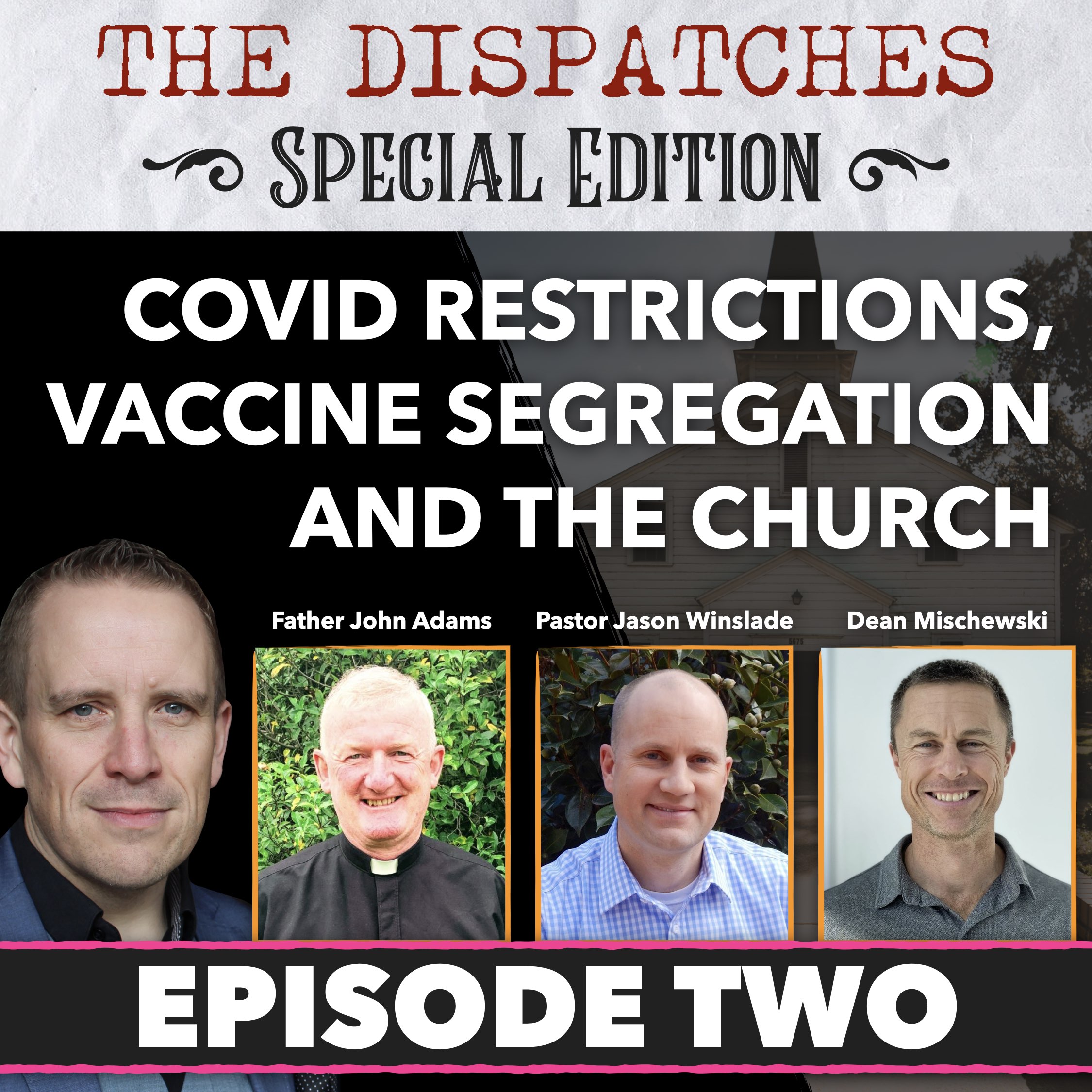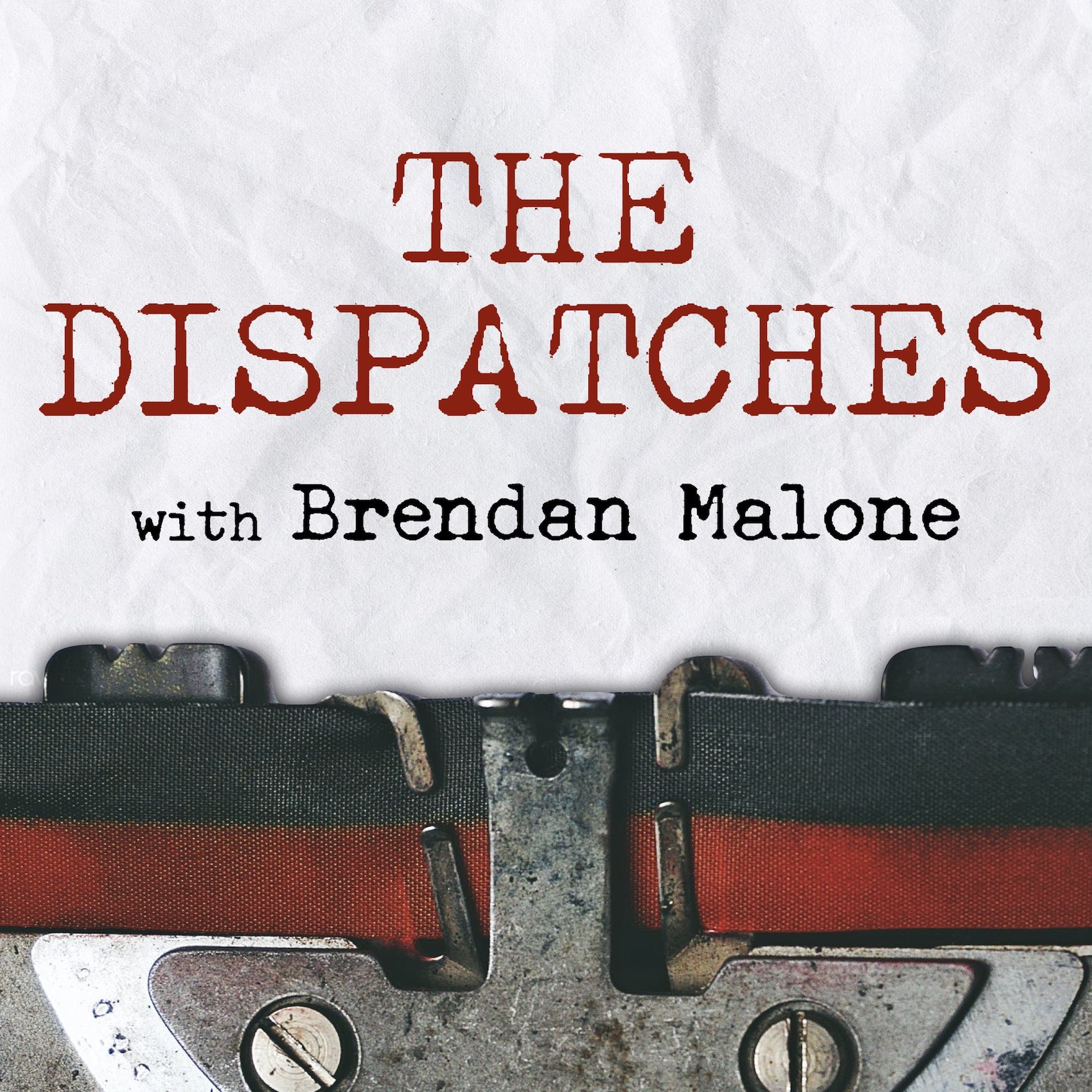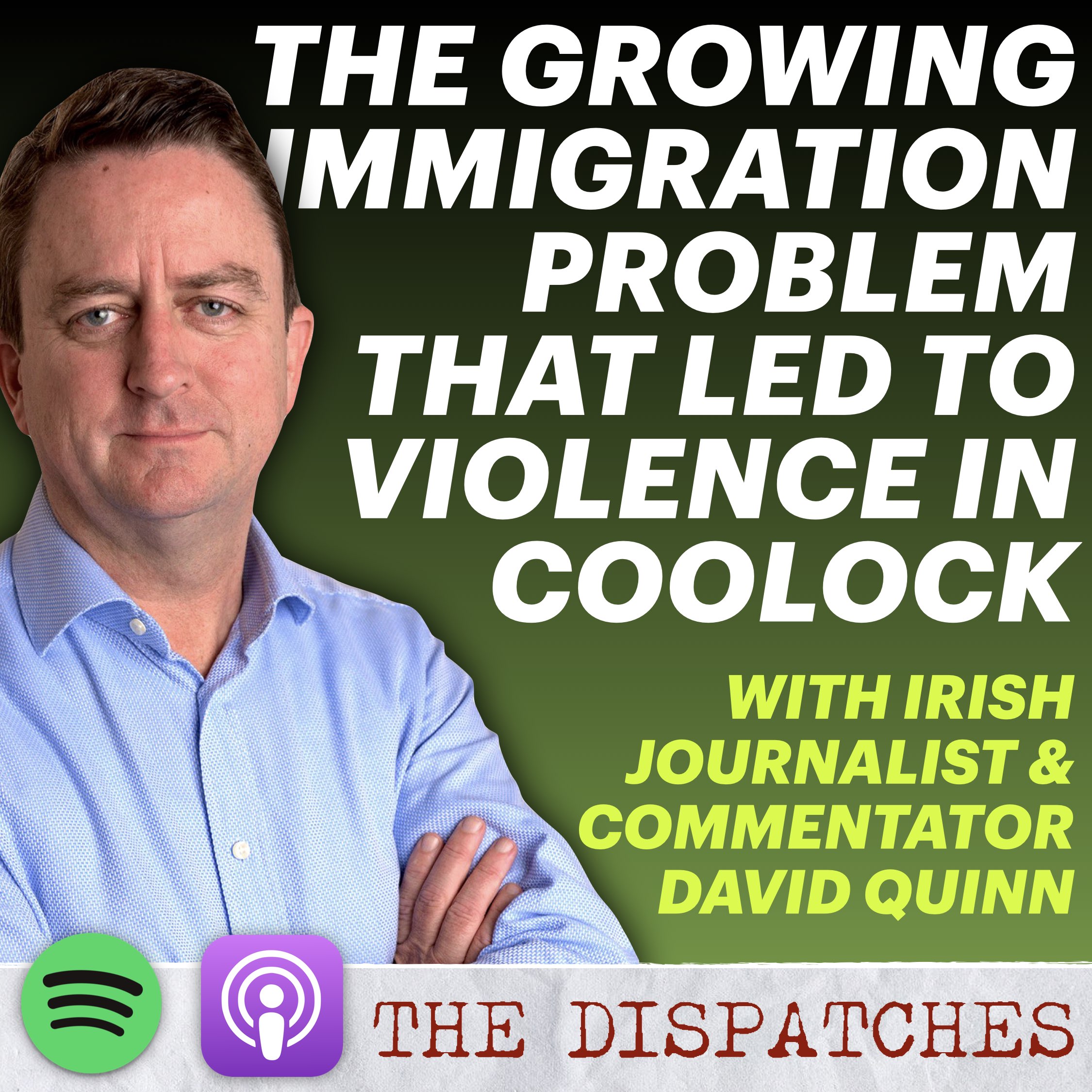Episode Transcript
[00:00:04] Hi, everybody. Welcome along to another episode of the Dispatchers. My name is Brendan Malone. It is great to be back with you again. And today we're going to be talking about the situation with the suspension of Jimmy Kimmel, late night TV show host, who's got himself into a whole lot of hot water because of something that he said on air. And he's now been suspended. His show has been taken off the air.
[00:00:27] As far as we are aware at the time I am recording this particular episode, it's not abundantly clear to me whether or not he has been fired. Some people are talking about him being fired, but it's not clear whether or not he has actually been fired or whether or not the show has just been pulled off air for a temporary period, which would be a reasonable tactic when corporates and corporate lawyers get involved. And it's quite conceivable that they've said, look, just pull them off air for a bit and, you know, let things die down and then maybe we'll bring him back later. So that could well still happen. He could also equally find himself fired. But the time I'm recording this, it's not abundantly clear to me whether or not he has actually been permanently fired, whether the show's been axed, or whether or not he is just temporarily off here. But I have to say before we take a deep dive into this and what I want to do in this episode is I want to look specifically at Kimmel. I want to look at late night shows in general as well. And I also then want to move out from there and, and take a bit more of a look at the actual authentic conservative position on free speech, because I think that matters in this case as well. So the first thing though, for me, just some opening thoughts. I have to say I find it extremely laughable, actually, that there are certain characters out there who are rushing to defend Jimmy Kimmel.
[00:01:50] And these are some of the same people who less than a week ago or just over a week ago were downplaying or in some cases I speak, maybe even sort of celebrating, but in most cases were downplaying the death of Charlie Kirk. And at the very least they were not saying things like, I've seen people now say, I stand with Jimmy Kimmel. There are people sharing that as a serious sentiment online.
[00:02:16] And I'm sorry, but it is just laughable. I look at that and I think, well, why didn't you stand with Charlie Kirk? And what exactly are you standing with when you stand with a man whose show has been suspended? For telling a blatant lie on television.
[00:02:33] I stand with the right to tell lies on public tv because that's exactly what Jimmy, sorry Kimmel has done here. He told a blatant lie, a very incendiary lie to and his show has been suspended as a result.
[00:02:49] So when you say I stand with Jimmy Kimmel, you are suggesting that there is such a thing as a human right to tell public lies. No such human right exists. It just doesn't. So this is just nonsensical. I look at this and you might be the same if you find yourself thinking, Mike, it all makes sense.
[00:03:06] Don't panic. This is the way it's supposed to be. This is very typical political Kabuki theatre that you see at times like this people aren't really saying rational or truthful things. Often there are some people out there who are trying to make principled arguments and some of those arguments I disagree with, some I would agree with. But that is happening also. But there is a whole lot of political Kabuki theatre, a whole lot of Kafka esque nonsense going on where people are just saying things because of political tribalism, but they are not true and they are not logically sound at all. There is no right to tell lies on television, on public television.
[00:03:43] There is no human right to claim that and to say, you know, I stand with this. While I actually ignore the murder of a man who was legitimately engaged in free and open dialogue and killed because of it. And I don't stand with him. The whole thing, as I said, is just Kafka s And it just, I think you need to sort of have that kind of approach to it, otherwise you go mad. Don't take it too seriously. Recognize there is a whole lot of political theater going along here based on tribal lines. People are just coming out and saying this stuff because it seems like this is the right thing for their tribe to say and to show hostility and aggression towards the other tribe. The truth is though, as I said, Jimmy Kimmel has been suspended after he told a very incendiary and very easily disprovable lie on air.
[00:04:40] Now this is a very important point because some people are talking as if all Jimmy Kimmel did was he told a joke and he's been suspended for telling a joke. That's not what happened here. He claimed that the killer, the alleged killer of Charlie Kirk was a member of the MAGA movement. He was one of their own.
[00:05:02] That is a blatant and easily disprovable lie. And it was at the time that he went to air. There is no dispute on that point.
[00:05:10] And this creates a bit of a problem for Jimmy Kimmel because of also the incendiary nature of what's going on here. We are talking about the murder of an innocent man simply because of the things that he said. And this is how Jimmy Kimmel chose to use his platform.
[00:05:28] Let me show you now what I understand to be the FCC rules or some of the rules that actually govern things around broadcasting in America. And I think when you look at these particular rules, you can see why. Perhaps the corporate lawyers at Disney looked at the situation and thought, ooh, we've got a bit of a problem on our hands here. So let's have a look at this. Let me read it to you here. The Commission's prohibition against the broadcast of hoaxes is set forth at section 73.1217.
[00:06:01] This rule prohibits broadcast licensees or permittees from broadcasting false information concerning a crime or a catastrophe. And that's exactly what they did.
[00:06:15] They broadcast an easily disprovable lie about a crime and or a catastrophe, the killing of Charlie Kirk. It goes on to say this. Let me read this again. This rule prohibits broadcast licensees or permittees from broadcasting false information concerning a crime or catastrophe if the licensee knows this information is false. Number two, it is foreseeable that broadcast of the information will cause substantial public harm. And three, broadcast of the information does in fact, directly cause substantial public harm. And it seems clear to me for any reasonable person that if you're a corporate lawyer looking at this, you're gonna say, I think the other side's got a pretty good case here. Certainly on point number one, that we can't really defend the position that there was some dispute about the political motivations. And we certainly can't defend the claim that this guy was a MAGA supporter. His own family has come out and said that, no, he wasn't.
[00:07:17] And so this information was false. And any reasonable person would have to say that it would be wrong to try and defend and say, well, I wasn't certain on this point. And certainly point number two, I think, is probably also a valid one. It is foreseeable that broadcast of the information will cause substantial public harm. And there might be some quibble on that. Point number three, I don't know. That's open for public debate. But the point is that as some are claiming, or they're trying to claim, oh, this is a violation of free speech because the FCC have come and threatened Disney.
[00:07:49] I seriously doubt Disney would have Caved.
[00:07:52] If the FCC had illegitimately threatened them with no grounds whatsoever, I seriously doubt that. Instead, I think what's gone on is their corporate lawyers have looked at this situation and have said, yeah, we're in a very, very precarious position here because of what Kimmel did. He's told a blatant lie on air.
[00:08:12] Because when you actually stop, take a step back and think about this scenario for just a second, you realize in actual fact what Jimmy Kimmel has really done here. Imagine for a second that this was you. And you worked for a corporation, and this corporation also had other affiliates, and those affiliates were in financial commercial partnership with you. Well, sorry, not you with the corporation you work for. And they took the products that you created, and they also marketed and made money from those products as well.
[00:08:44] And you were someone who was working for that corporation. And for many months now, in fact, for over a year, and this is an ongoing trend, your particular department that you were managing and looking after, there had been a massive and ongoing consistent decrease in customers, and there was a growing public disinterest in your commercial offerings from your particular department.
[00:09:13] And let's imagine one night, while you are engaged in the corporate duties that you are employed to carry out, you tell a public and very incendiary lie that is seen and heard by a lot of people and causes massive reputational damage to the company that you work for and for the affiliates.
[00:09:34] And it creates a major ripple effect out into the public.
[00:09:39] And those affiliates in the company that you work for, their revenue stream is now under potential threat, and the company brand has been brought into serious public disrepute. Sorry. As a result of what you have done and said at that point, if you are suspended by your company, you are not a martyr to free speech.
[00:10:05] You are not a victim of cancel culture.
[00:10:08] You are someone who has done something incredibly foolish on company time while engaged in company business that has done harm to the company that you work for. It's not on your spare time. It's not a secondary matter. It's not private dealings or private business. This is work, business work time. And. And you've done serious harm to the company.
[00:10:34] What do you think would happen to you if you did that in any other circumstance? You'd be lucky to keep your job if you did that. At this stage, it's not clear whether Kimmel, as I said, has been permanently fired or whether this is just a temporary suspension. But that is the simple truth of what's gone on here. And so we need to be very careful about not turning this into something that it's not. This is not about a free speech martyrdom at all. And as I said, even if the fcc, I think this is a smokescreen. I'll tell you why in just a second.
[00:11:03] But even if the FCC has somehow like become a player in this, this government department is sort of putting pressure on Disney in some way and that's why they've acted, I personally think that's a smokescreen. But let's say that was, as you can see from the actual rules around broadcasting that we've already looked at, the FCC has reasonable grounds to actually intervene here based on what's gone on.
[00:11:27] But I think that's a smoke screen because I'm seeing reports from multiple sources that the Sinclair and nickstar broadcast groups, these are the affiliates who actually also broadcast Jimmy Kimmel's show. And they don't broadcast to a liberal left, very progressive New York audience. They broadcast, I believe, right onto the Midwest and other places like that. So we're talking here about a more middle American audience and who does not, unlike progressives, they do not take delight in someone joking or being toxic about the murder of an innocent man that has just happened. They don't take that well. And the reports I've seen is that the Sinclair and nexstar groups basically went to Disney and said, we're gonna, we're actually gonna drop the syndication of the show because this is threatening our revenue. And so they were the ones who actually applied the pressure. So if those reports are true, and I don't see why they wouldn't be because this is just basic business.
[00:12:27] And the other factor in this is, like I talked about earlier, is the fact that not just Kimmel, but all the other late night shows, they have been hemorrhaging ratings for many years now. We'll look specifically at that point in just a second. But I think about something like Stephen Colbert and the. He was on the. The Late show, wasn't it? The. Yeah, the Late show, the Tonight Show, I can't remember which one he was. But Stephen Colbert, he was dropped as well by a network several months ago. And immediately you had the same silly reaction from some people. They said, oh no, this is a violation of free speech. He's been sacked because he's an enemy of Trump. This is just like what the Nazis did. It's utter nonsense. This is not what is going on here at all. Stephen Colbert's show was tanking ratings. And what that means is that it was a revenue sinkhole. It's not making the same money for the company. It's costing them a lot more money to keep him on air than it is to drop him. And so it just becomes a very simple commercial equation, a very simple like commercial decision at that point. And as I understand things, basically the Kimmel show was slightly worse as far as, in fact, if you look at his trend, his ratings were always lower than Colbert. And so these shows are not making money. Now I say this as someone who actually was a former fan of Stephen Colbert and his comedy, but when they gave him the Late show, was it the Late. It is the Late show, isn't it? Yeah, sorry, there's so many of them. The Late Late show, the Late show, the Tonight show, but the Late show, when they gave him that position after David Letterman retired, I always looked at that and thought this is a really strange commercial decision because I just never believed that Colbert was ever going to be able to sustain what David Letterman had able, like been able to sustain. In fact, I remember when they started broadcasting the Late show with Letterman here in New Zealand on our late night tv, I think they would broadcast a day after, if I remember correctly, because of the time difference.
[00:14:35] But I remember this was in a time period when you would actually stay up to watch that show or, or if it came on, you'd stay watching the television. You'd stay up and keep watching the television because it was a show worth watching. But this particular entertainment medium is just no longer interesting to audiences. Times have moved on, technology has changed and people are just not tuning into these shows and they are hemorrhaging revenue. I never understood the decision to make Stephen Colbert the host of that show. I liked Colbert when he was a bit player, a character effectively I on the Daily show with Jon Stewart and he played that quote unquote, conservative interviewer. It was a fictional character he created who would interview people and he would say these outlandish things, basically pretending that he was a die hard conservative. And there was comedic value in what he did and it was funny. He was good as a bit player and he did ably as a filler. When Jon Stewart couldn't host the show, Colbert would often fill in for him hosting the show.
[00:15:38] But the idea that he could sustain something like David Letterman's former show, that never made any sense to me. And sure enough, what happened, he gets the show and he's really not the same type of Persona that Letterman was. He just doesn't carry. He doesn't have the gravitas or the charisma or the weight that those other guys who carried those shows had.
[00:16:00] And it pretty quickly sort of devolved into a situation where Stephen Colbert effectively became the character that he had invented and played on the Daily show with Jon Stewart. He was this outlandish, hyper politicized figure. And it just lacked all gravitas and depth. And increasingly it became increasingly unfunny.
[00:16:22] And so it was never a winning formula.
[00:16:25] I personally don't believe that he would have actually won that Emmy last. Was it last week or earlier this week? It was Monday, I think, wasn't it, when the Emmys were. I don't think he would have been awarded that Emmy if his show was still on air. I just don't think it was that good. I think the Emmy was basically the Hollywood establishment snubbing their nose at the network. They were saying, oh, he's one of our own. And they were trying to give the middle finger. And that's why they gave him the Emmy. Because when you look at the content and the quality of the programming that he was producing, it was just average. It was middling at best. And it just wasn't funny.
[00:17:02] It was hyper politicized. And so I think that this was just them looking after one of their own. It was sort of just more political tribalism than anything else. And as I say, I say this as a former fan of Colbert's comedy when he was a character, a bit part, sorry, comedian on the Daily Show.
[00:17:19] But he's tanked since then. He couldn't sustain a late night show. And if you look at the ratings, this is the reality. Have a look at this. You can see here across all of the shows, the late night shows. That's Jimmy Kimmel live there, who's just been suspended. There's the Late show with Stephen Colbert and there's the Tonight Show. I think that's Jimmy Fallon, isn't it? The Tonight Show? There's so many of them, man, that I'm just confused by who's who. But the point you can see here is that the Tonight show has probably done the best out of those three. The Late show and Jimmy Kimmel are lagging behind, and Kimmel is doing the worst of the lot.
[00:17:57] So if they got rid of the Late show because it was not financially viable, do we really believe that Kimmel was actually capable of sustaining and surviving and keeping the Jimmy Kimmel show alive? No, I just don't believe that for a second.
[00:18:13] So I think what's happened here is that basically Disney has taken an opportunity. A golden opportunity has been handed to them by Jimmy Kimmel and his errant behaviour. And it's given them an excuse to pull the plug earlier than what they were going to do. But I'm confident they were going to pull the plug. And it is my strong belief that you will see more plug pulling over the coming months, if not years, where these late night shows will just be pulled off air because they are just no longer a sustainable form of entertainment medium. People are tuning out, they are just not interested. And that's the reality of the situation.
[00:18:54] Colbert was not a victim of, you know, anti free speech. He was a victim of the fact that he was part of a dying medium and he just wasn't good enough to sustain it. That's the reality of it. I don't know if anybody could, to be honest, but he certainly wasn't. And so it was a financial sinkhole. The company just made a very basic and sort of straightforward commercial decision, I believe. Now let's take a step back though and think about the issue of, of free speech. Because here's a key point to understand conservatism. Authentic conservatism has never, ever maintained or endorsed, and I've talked about this previously on the show, authentic conservatism has never held free speech absolutism as a position.
[00:19:40] It's always understood that there has to be a balancing of certain humans, human freedoms along with the common good and the public good is part of that.
[00:19:51] It's a balancing act of the community versus the individual and their actions. It's always understood that. Now the other thing I'd say about free speech absolutism before I suggest to you what I think the authentically conservative position is on this issue is I also don't think that the free speech absolutists have ever actually proved their central claim, their central case. And their central case is that in an unregulated free market of ideas where people can just say whatever they want, that the truth and the good ideas will always defeat the evil and they will always rise to the top.
[00:20:28] That claim, that central claim that free speech absolutism is built on, I don't think has ever been proven. And I actually don't think it is a valid claim at all. In fact, I think we can point to very clear examples where an actual fact is the old saying people like to use would go, you know, sunlight is the best disinfectant. Okay, sunlight can be a disinfectant, but Sunline, sunlight, sorry, can also apologies to whatever Sunline is. I'm not sure I imagine it's probably some roofing product or sunscreen or something like that. But sunlight can also be a growth promoter. If you put sunlight and moisture on a weed, you get a whole lot more weed. And so the central claim that sunlight is the best disinfectant and in a free market of ideas, the truth will always rise to the top. I don't think that's ever been proven at all. And I think that's important because free speech absolutism, even in the traditional Enlightenment liberal tradition, it's not where Enlightenment liberalism, like they didn't. Enlightenment liberalism didn't actually hold to a strict free speech absolutism. Certainly they are in favor of the rights to express yourself. But the idea of free speech absolutism, that is a particularly American idea and it is a very recent idea in the history of humanity. And as I said, I don't think the central claim has ever, ever been satisfactorily proved to be true. Think about this in economic terms. If you have a total open free market with no regulations whatsoever and people can do whatever they want when it comes to money and trade and business dealings, what happens in that environment?
[00:22:09] The powerful people manipulate and do evil things and there's vice that comes into the market and great harm is done.
[00:22:16] So you have to have a certain openness, that's for sure.
[00:22:20] But also there has to be some restrictions in place, otherwise you end up with anarchy that leads to bad outcomes. And I would suggest the same is true in the marketplace of ideas. So can I suggest to you, my belief is that the authentically conservative position is one where we would say that we have a very high degree of tolerance for free and open discourse, particularly around essential questions that pertain to things like faith, morals, politics, anytime. Basically, I guess the question to ask is, is this, this expression, the speech that's going on, is it a genuine dialogue like that is genuinely seeking to discover what is true?
[00:23:08] And if you can say, yes, this is absolutely a dialogue which is genuinely truth seeking in nature. It's trying to get to the bottom of what is true and it's not something else, then conservatism would say, then absolutely there should be no boundaries upon that. People should be free to dialogue. So we have a very high tolerance in that regard. For. But it's not absolutism. We would say there are certain points at which certain types of expressions of ideas are actually harmful to the public good and they should be curtailed as a result. So, for example, I gave a presentation a couple of years ago at an event, a Christian event. And I was asked to present on this issue. And the guy who went before me said something that I would strongly disagree with because it was completely inconsistent with the authentic conservative and certainly Christian tradition as well as.
[00:23:57] And that is the claim that he made at one point where he actually cited an example of a book, a piece of literature that wasn't just fictional. This was a non fiction work that advocated for paedophilia for sex between adults and children. And he claimed that even though he found this idea reprehensible, he said it would be wrong, he felt to have that book banned or prohibited and that it should be available for people to, to engage with in public bookstores and public libraries and the likes. I'm sorry, but conservatism would say no way. That is an easy hard pass.
[00:24:33] There is no way that you could in the conservative vision of reality, have books or movements that are openly advocating for destructive and harmful behaviours to other persons, like paedophilic, sexual abusive minors, because that's what that book represents.
[00:24:51] And so no, there are absolutely limits now in other areas outside of this. So we were talking about, you know, what about where it's not like a genuine truth seeking dialogue, you know, what about like a comedy club or a TV show or a fictional book, what do you do then? What does conservatism say? And I think that basically in those other areas outside of that truth seeking dialogue, because not everything is that where people are expressing themselves in some way or another. Conservatism again would say basically we need to consider each example on a context by context basis and we need to take the specific context into account before determining or making some sort of moral ruling, if you like, about you know, what the appropriate response would be. And then on top of that we would also say that we would not want to be disproportionate or unjust or excessive in our response.
[00:25:48] So even if you've got someone like for example, in a comedy club, it's not uncommon to hear obscenities and obscene jokes and oftentimes jokes that are really distasteful and insensitive about for example, victims of the Holocaust.
[00:26:02] It would be disproportionate though to say, well, these people should be financially punished or they should be like by the state or they should be imprisoned because that would be doing greater harm. When you create laws you should ask that question, what goods are worth protecting and at what price?
[00:26:17] And I think you'd be paying too high a price there so we, we would want to not be disproportionate in our response, we would not want to be excessive. And you'd have to consider each on a case by case basis. So, for example, the production of pornography is a pretty clear one. No, that could not be tolerated, as some have tried to claim, as a free speech action. But because pornography does great social harm, it does very serious moral and social and other physiological harms to human persons and to society as a whole.
[00:26:47] So pornography would be an easy one to say that's a case, it's not a truth seeking dialogue. But that's one where you absolutely would clamp down on it.
[00:26:56] What about Drag Queen Story Hour? Well, that's another one that I think is quite easy because what you're talking about there is the sexualization and a harmful sexual ideology being presented to children, having children exposed to this in a normalising kind of way. And so it seems pretty clear to me that no, you would actually intervene in that situation and say, no, it's not like you'd say, well, let's have Drag Queen Story Hour with children and then after that we'll have good, wholesome conservative Story Hour after that. That is just not a workable or I just don't think that that is a realistic, you know, taking into account of reality type scenario to propose. But I know some people have proposed that that is not how that works. So conservatism is not about free speech absolutism. But then as I said, there might be other areas. Someone tells an off color joke or, you know, comedy or fiction works. And I think we would obviously want to say that there is a certain, what would you call it, leeway that people as adults rightly should have, where the state shouldn't be interfering and where they have to actually take responsibility for their own moral conscience. And, and so, you know, it would be excessive to intervene. And I've always been a firm believer that when it comes to freedom of expression, that failing safe is kind of one of those necessary things. And what that means is that you might have to accept the fact that there will be people who say things that are obscene and off colour or they don't express themselves in the most perfect way in order to safeguard a space where people can actually in a public way, speak truthfully about issues that do matter. So sometimes people will abuse that particular freedom around the fringes. And, but to try and clamp down on that would actually create a great harm. And so you've got to let this thing fail Safe. If the principle fails, it fails safe. And the way that it fails safely is by actually just tolerating and putting up with some of that stuff around the fringes. That's my personal belief. Just to finish with, here's my concluding thought. Jimmy Kimmel is not a martyr for free speech. Jimmy Kimmel is definitely not a victim of any cancel culture.
[00:28:55] The only martyr for free speech that we've seen in the past week, the only victim of anti free speech ideology was Charlie Kirk, a man who was murdered very publicly and a murder that has gone out all around the world. Some have called it the next shot that rang out around the world simply because he was freely expressing himself in a charitable and civil way about important ideas, in a genuine dialogue, attempting to actually get closer to what is true.
[00:29:32] He is the victim, not Jimmy Kimmel, and we need to never lose sight of that. And I think it's something that is worth pointing out to those people who are now trying to present Jimmy Kimmel as if somehow he is a great champion of goodness, truth and beauty who has been unjustly violated and harmed and dealt with by an exceedingly authoritarian state. That's not what's gone on here at all. Thanks for tuning in. Don't forget, live by goodness, truth and beauty, not by lies. And I'll see you next time on the Dispatchers.
